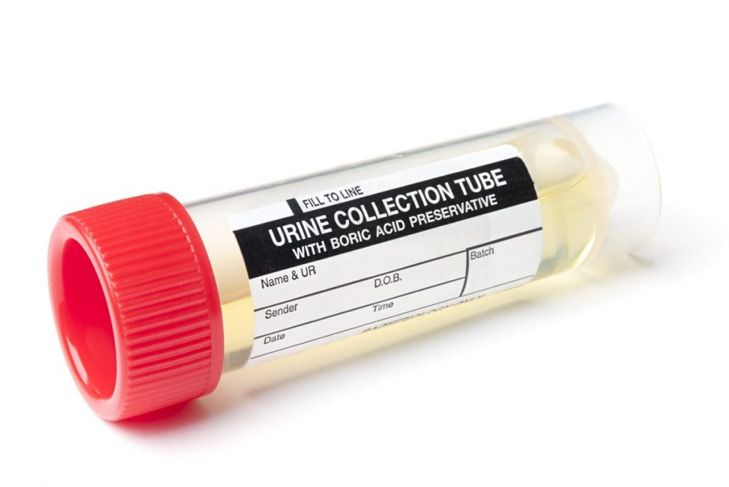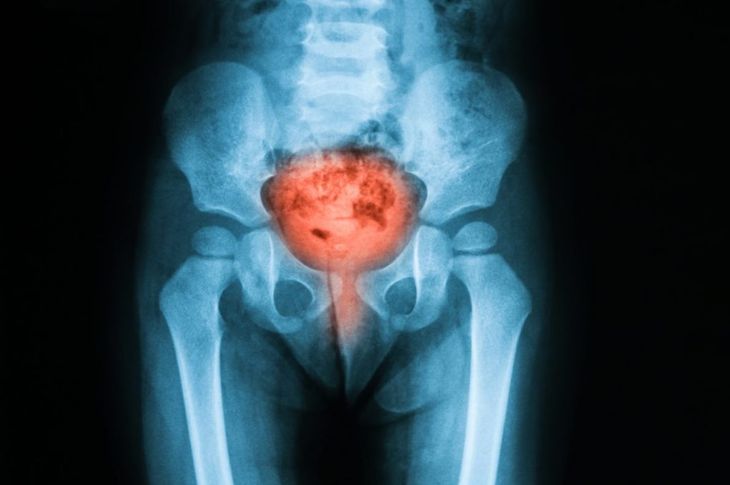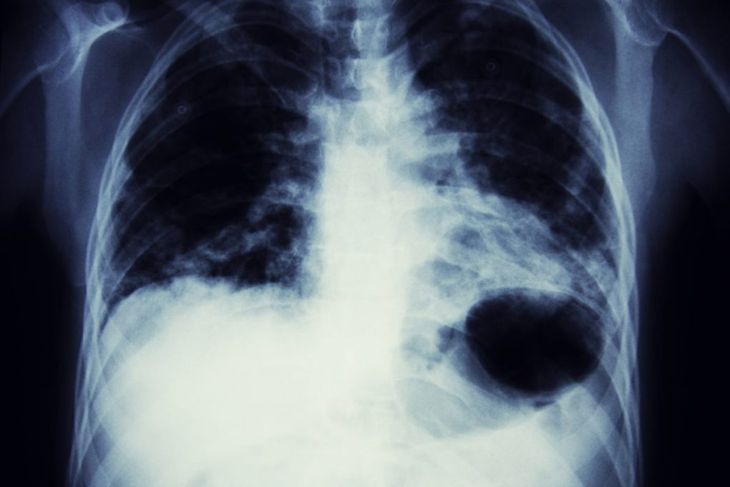Bladder cancer is a type of cancer called carcinoma that most often occurs in the inner lining of the bladder. The disease is caused by abnormal cellular growth leading to a malignant tumor. The most common sub-type of bladder cancer is transitional cell carcinoma (also called urothelial carcinoma), which develops in the urothelial cells that line the inner walls of the bladder. Doctors can often diagnose bladder cancer in the early stages when it is highly treatable. Identifying the signs is key to early detection, treatment, and recovery.
Blood in the Urine
Blood in the urine or hematuria is the most common, and often the first, sign of bladder cancer. It occurs when the tumor inside the bladder is bleeding. The bloody urine may be bright red, orange, or pink and occur regularly or intermittently. Blood particles might also be microscopic and detected only in a urinalysis ordered by a doctor. In the early stages of bladder cancer, blood in the urine could be the only sign.
Frequent or Urgent Urination
A person with bladder cancer may feel the need to urinate frequently or urgently. The frequency of normal urination depends on several factors, particularly the amount of daily water intake. Most healthy adults urinate between four to eight times a day. More frequent urination may indicate a disease of the bladder, including cancer. The need to urinate suddenly and immediately can be another sign and can cause leaking or involuntary urinating.
Urinary Retention
On the other end of the spectrum, cancer in the bladder may present with urinary retention. Complications include an inability to urinate when the urge arises, trouble initiating a urine stream, interrupted urination, and straining when attempting to empty the bladder. The individual might also feel the urge to urinate immediately after emptying the bladder. Urinary retention is often a result of obstruction of the urinary tract by the tumor or the development of blood clots in the bladder.
Pelvic Mass
Neither the person with cancer nor a doctor can feel an early-stage tumor in the bladder. In the later stages of the disease, the physician may be able to locate a palpable mass in the pelvis. This typically indicates that the tumor has progressed, and the cells have invaded the deeper layers of the bladder walls. A palpable mass may also indicate that cancer has begun to metastasize or spread.
Recurrent Urinary Tract Infections
Bladder cancer does not necessarily cause urinary tract infections (UTI), but the symptoms and signs may be mistaken for a UTI. The presentation of bladder cancer and a UTI are quite similar. Upon hearing the symptoms and detecting blood in the urine in a urinalysis, a physician might misdiagnose the more common infection and prescribe an antibiotic. If an individual is getting consistent UTIs for no other apparent reason, however, this can indicate a more serious underlying condition such as bladder cancer.
Weight Loss
Weight loss is a sign common to most cancers, including that of the bladder. The changes occur for several reasons, including the body’s immune response to the cancerous cells and loss of appetite. The immune system releases substances called cytokines intended to fight the malignant cells. This release can affect metabolism, resulting in the loss of muscle and fat.
Anemia
Anemia occurs when the blood contains too little hemoglobin, the red blood cell component responsible for transporting oxygen through the bloodstream. Anemia may develop in bladder cancer due to the processes underlying the growth of the malignant tumor, which can deplete the body of vitamin B12 and iron. Anemia presents with shortness of breath, swelling of the hands and feet, and a rapid heart rate.
Metastasis
Untreated bladder cancer will metastasize to other parts of the body, commonly the liver, lungs, and bones. Worsening signs and symptoms of bladder cancer are often evidence of metastasis. Signs of metastasis also depend on the areas in which the cancer has spread. Liver cancer causes abdominal swelling and jaundice; a persistent cough and trouble breathing may indicate lung cancer. Bone cancer leads to weak and fragile bones that break easily and bone pain.
Pain and Irritation
People with bladder cancer often experience pain and irritation when urinating, which often causes a burning sensation. Bloating and discomfort in the lower abdomen and generalized pain in the back and pelvis might also occur. Painful urination is common in the early stages of bladder cancer, but more advanced or radiating pain will not usually develop until later stages.
Fatigue and Weakness
Feeling tired and weak is a common symptom of most types of cancer, particularly in the later stages. The same substances released by the immune system that cause cancer-related weight loss — cytokines — also cause fatigue. Anemia and lack of appetite can also lead to these symptoms.

 Home
Home Health
Health Diet & Nutrition
Diet & Nutrition Living Well
Living Well More
More




















